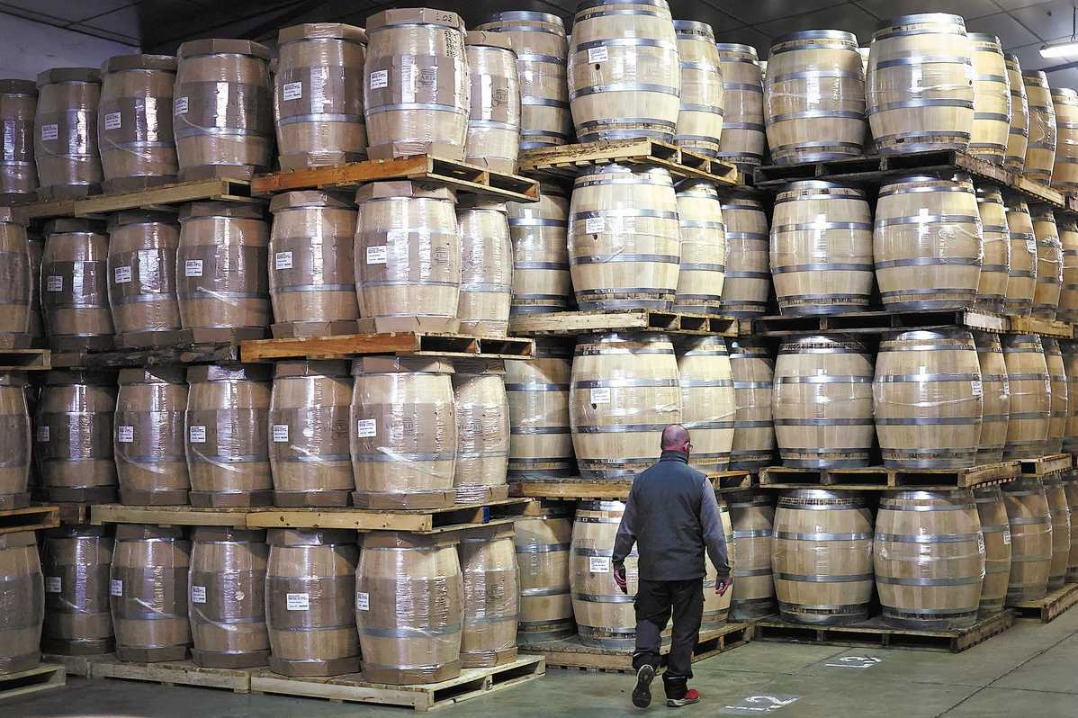Kenyans harvest hope with Chinese technology

A new tomato grafting technology from China has significantly boosted tomato production on pilot farms in Kenya, offering local farmers a more sustainable and productive method to grow this essential crop.
As demand for tomatoes rises and challenges from pests, diseases and climate change intensify, grafting is emerging as an innovative solution that enhances yields and improves livelihoods.
Tomato grafting involves attaching the shoot of a high-yielding but disease-sensitive tomato variety (scion) to the rootstock of a hardy, disease-resistant variety, explained Liu Yutao, the Chinese director of the Confucius Institute at Egerton University in Nakuru County, Kenya.
This technology results in high-quality tomato fruit production of the scion and the resilience of the rootstock, said Liu, who is from China's Nanjing Agricultural University.
"The grafted seedlings have the advantage of better growth, higher yield, mature early and have a long duration of tomato fruit production. It helps farmers realize a 50 percent increase in their yields, something they could not achieve previously when they were using the traditional farming systems."
This technology was introduced to local small-scale farmers through a partnership between Nanjing Agricultural University and Egerton University, as part of a project funded by the China-International Fund for Agricultural Development South-South and Triangular Cooperation Facility.
The one-year project, titled Empowering Rural Youth through Innovative Horticultural Solutions in Tomato Value Chain, is being carried out in Nakuru city, about 160 kilometers from Kenya's capital Nairobi.
Since its launch earlier this year, the project has trained more than 1,000 small-scale farmers in modern agricultural techniques.
Liu said that last year, 290,000 hectares of tomatoes were planted in Kenya, yielding a total production of 681,000 metric tons.
Late last year, the Confucius Institute of Egerton University invited the first batch of agricultural experts from Nanjing Agricultural University to Kenya to provide training on tomato grafting technology.
Stephen Githengu, a horticultural lecturer at Egerton, said the project has 15 greenhouses owned by small-scale farmers in Nakuru County who were recruited and trained in the new technology.
"This partnership has seen more than 1,000 small-scale farmers and over 100 technicians trained in the grafting technology, made possible by a combination of modern Chinese equipment," Githengu said.
The first grafted tomatoes ripened late last month, with initial assessments conducted in pilot areas such as Molo, Naivasha and Bahati subcounties.
Githengu said the yields have shown that the technology is 99 percent accurate in addressing the challenges facing small-scale farmers.
Esther Wanja, one of the local farmers benefiting from this grafting technology, owns a 50-by-80-meter greenhouse with 400 tomato plants in Naivasha.
"This is the solution we've been waiting for. I'm just harvesting my tomatoes and already I have customers at our local market," she said.
Wanja, a tomato farmer for more than 20 years, said she expects to make a profit of $500 this year. "This kind of profit was impossible with our traditional farming practices since we were faced with bacterial wilt diseases that affected our yields' quality and we were always making losses. But now, the future of tomato farming looks brighter."
Demonstration farms
Another farmer benefiting from the grafting technology is Willy Gitonga from Bahati. His two greenhouses were selected as demonstration farms for the new technique.
He was assigned a technician to ensure compliance with the training instructions.
"We are all familiar with the fact that tomato fruits are incredibly seasonal, and with traditional farming we could only harvest twice per year. But now, with grafting technology, we can plant and harvest throughout the year due to its ability to resist seasonal diseases," he said.
Gitonga also mentioned that the technology helps reduce reliance on costly chemical pesticides and fertilizers, which always eat up farmers' profits.
Liu from Egerton University said there are plans to expand the technology to other regions in Kenya to improve food security.
"We will demonstrate the technology to more local farmers and extend it to other parts of Kenya. We are also eyeing innovations in the tomato value chain to empower more rural youth and women as a way of creating a decent income," he said.
The writer is a freelance journalist for China Daily.
































